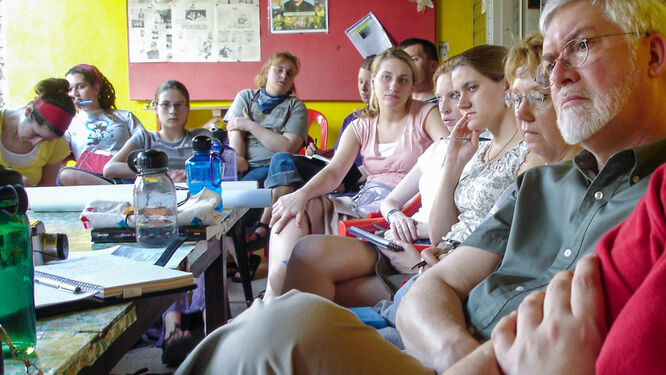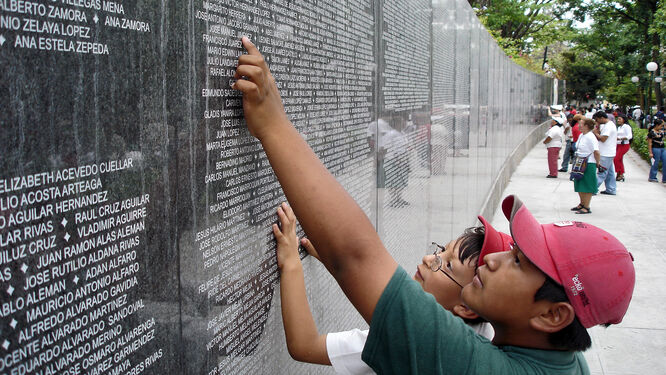Get Beyond Your Comfort Zone — Choose to Be Challenged

Previous:
I've long been enthusiastic about how travel can broaden your perspective. But I didn't always preach this gospel very smartly. Back in the 1970s, in my early days as a tour organizer and guide, I drove 50 or so people each year around Europe in little minibuses. I had a passion for getting my travelers beyond their comfort zones. Looking back, I cringe at the crudeness, or even cruelty, of my techniques.
As a 25-year-old hippie-backpacker-turned-tour-organizer, I had a notion that soft and spoiled American travelers would benefit from a little hardship. I'd run tours with no hotel reservations and observe the irony of my tour members (who I cynically suspected were unconcerned about homelessness issues in their own communities) being nervous at the prospect of a night without a bed. If, by mid-afternoon, I hadn't arranged for a hotel, they couldn't focus on my guided town walks. In a wrong-headed attempt to force empathy on my flock, I made a point to let them feel the anxiety of the real possibility of no roof over their heads.
Back when I was almost always younger than anyone on my tour, I made my groups sleep in Munich's huge hippie circus tent. With simple mattresses on a wooden floor and 400 roommates, it was like a cross between Woodstock and a slumber party. One night I was stirred out of my sleep by a woman sitting up and sobbing. With the sound of backpackers rutting in the distance, she whispered, apologetically, "Rick, I'm not taking this so very well."
Of course, I eventually learned that you can't just force people into a rough situation and expect it to be constructive. Today, I am still driven to get people out of their comfort zones and into the real world. But, now in our tour program, we do it more gently and in a way that keeps our travelers coming back for more.
For me, seeing towering stacks of wood in Belfast destined to be anti-Catholic bonfires, and talking with locals about sectarian hatred helps make a trip to Ireland more than just Guinness and traditional music sessions in pubs. Taking groups to Turkey during the Iraq wars has helped me share a Muslim perspective on that conflict. And I consider visiting a concentration camp memorial a required element of any trip we lead through Germany.

As a tour guide, I make a point to follow up these harsh and perplexing experiences with a "reflections time" where I only facilitate the discussion and let tour members share and sort out their feelings and observations. I've learned that, even with the comfortable refuge of a good hotel, you can choose to travel to complicated places and have a valuable and learning experience.
A few years ago, I had an opportunity to hang out on the beach for a vacation in the ritzy Mexican resort of Mazatlan. The enticing beach break coincided with an invitation to go to San Salvador (the capital of El Salvador) to remember Archbishop Oscar Romero on the 25th anniversary of his assassination.
For my vacation, I opted for El Salvador — to share a muggy dorm room, eat rice and beans, be covered in bug bites, and march with people in honor of their martyred hero who stood up to what they consider American imperialism. The march passed a long, shiny, black monument that looks just like our Vietnam memorial. It was busy with mourners and etched with countless names — each a casualty of a civil war their loved ones believed was fought against American interests and American-funded troops.
It's not a matter of whether America is good or bad in a certain instance. The fact is, the popular patriotic sentiment "my country right or wrong" — while embraced by many Americans — is by no means unique to our country. There are good people waging heroic struggles all over the world… against our country.
If you've got a week to spend in Latin America, you can lie on a beach in Mazatlan, you can commune with nature in Costa Rica, or you can grapple with our nation's complex role in a country like El Salvador. I've done all three, and enjoyed each type of trip. But El Salvador was far more memorable than the others. The tourism industry has its own priorities. But as a traveler, you always have the option to choose challenging and educational destinations.
Next:

